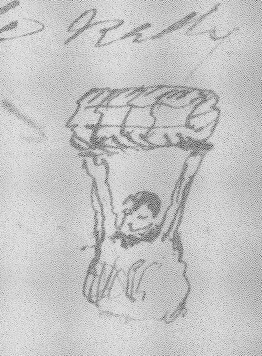By Kathleen Barker, Education Department
In the introduction to his 1903 book The Souls of Black Folk; Essays and Sketches W.E.B. Dubois argued that “the problem of the Twentieth Century is the problem of the color-line.” Is that problem still with us today, or do twenty-first-century Americans face a different challenge with respect to race and social justice? This is just one of the intriguing questions we will discuss next Wednesday, 2 April, at the final session of our film & discussion series, “Created Equal.” Facilitated by Joanne Pope Melish, author of Disowning Slavery: Gradual Emancipation and “Race” in New England, 1780-1860, this series was made possible through funding from the National Endowment for the Humanities and the Gilder Lehrman Institute of American History.
These public programs center on four nationally-acclaimed documentary films that address various aspects of the long Civil Rights movement. (Visit the Created Equal website to learn more about each film, including how to view it online.) Our first event, on 12 February, explored the issue of marriage, and the laws that regulate who can marry whom. In 1958, Mildred Jeter and Richard Loving were married in Washington, D.C. Unfortunately, the couple lived in Virginia, where it was technically illegal for them to live as a married couple because Mildred was of African American and Native American descent and Richard was white. The Lovings’ case, which was eventually heard by the Supreme Court of the United States, raised many issues—in the 1950s and in our discussion—about the definition of rights and how the Equal Protection Clause of the 14th Amendment to the U.S. Constitution does (or does not) protect certain rights.
On 12 March, we moved backwards in time to discuss the abolitionist movement using the three-part PBS film The Abolitions. Participants enjoyed debating the methods used by filmmakers to bring this era to life. A fruitful discussion about the film, its intended audience, and “traditional” narratives of American history took up most of the evening. Why, for example, was Frederick Douglass the only back abolitionists mentioned? Here in Boston and New England we recognize the important contributions made by African Americans such as Lewis and Harriet Hayden, and William Cooper Nell. Participants were distressed to find that these local protagonists were left out of the narrative! We ended the program with this provocative inquiry: were the abolitionists successful?
Our last event will address two important post-Civil War issues. We will watch clips from Slavery by Another Name, which describes the huge system of forced, unpaid labor, mostly affecting Southern black men, that lasted until World War II. We will also view segments of Freedom Riders, a film that celebrates the Freedom Rides of 1961, and the often terrifying conditions faced by black and white volunteers as they attempted to desegregate public spaces in the Deep South. It’s not too late to join us! Contact the Education Department (education@masshist.org) to register, or visit our web calendar to learn more about the program.





